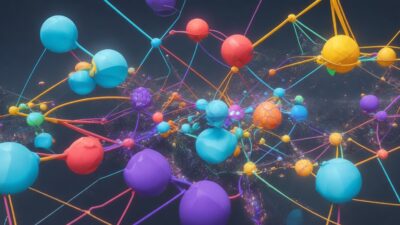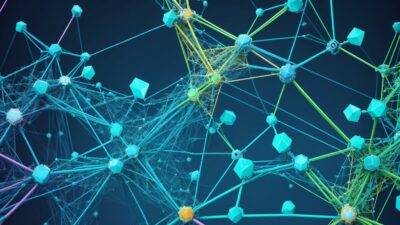DeepMind’s AlphaFold: Revolutionizing Protein Structure Prediction and Its Potential Applications

DeepMind, the renowned artificial intelligence research lab, has made a groundbreaking breakthrough in the field of protein structure prediction with its AlphaFold algorithm. This revolutionary development has the potential to transform the understanding of biological processes and enable new innovations in various industries, including healthcare, agriculture, and environmental sciences.
Understanding Protein Structure
Proteins play a crucial role in nearly every biological process, from muscle contraction to immune system response. They consist of long chains of amino acids that fold into specific three-dimensional structures, which determine their function. Predicting the structure of a protein from its amino acid sequence is a highly complex task, and scientists have been trying to solve this problem for decades.
Introducing AlphaFold
AlphaFold, developed by DeepMind, is an AI-based algorithm designed to predict protein structure with incredible accuracy. In 2020, it participated in the Critical Assessment of protein Structure Prediction (CASP) competition, where it outperformed all other methods and achieved an impressive global distance test (GDT) score of 92.4 out of 100. This achievement marked a significant milestone, as the algorithm’s predictions were considered comparable to experimental results.
Potential Applications
The remarkable success of AlphaFold opens the door to numerous potential applications across different fields:
- Drug discovery: Predicting protein structure can speed up the process of drug discovery by helping researchers understand how new compounds interact with target proteins, thereby enabling the development of more effective treatments for various diseases.
- Agricultural biotechnology: AlphaFold’s predictions can aid in the design of genetically modified crops with improved resistance to pests, diseases, and environmental stresses, contributing to more sustainable agriculture.
- Environmental solutions: The algorithm can also help develop proteins capable of breaking down plastic waste or capturing carbon dioxide, thereby addressing some of the most pressing environmental challenges we face today.
- Personalized medicine: Understanding protein structures could lead to the development of more targeted therapies for individuals, taking into account their unique genetic makeup and specific health conditions.
- Bioinformatics and computational biology: AlphaFold’s success will likely spur further advancements in the fields of bioinformatics and computational biology, leading to new algorithms and tools for analyzing biological data.
Challenges and Future Directions
Despite the remarkable progress made by AlphaFold, some challenges still need to be addressed. The algorithm may struggle to predict the structures of certain proteins, particularly those with large, complex shapes or those that are part of larger molecular complexes. Additionally, understanding the dynamic nature of proteins and how they change their structures in response to different conditions remains an ongoing challenge.
Nevertheless, the impact of AlphaFold on protein structure prediction and its potential applications across various industries is undeniable. As DeepMind continues to refine the algorithm and researchers explore new ways to leverage its capabilities, the possibilities for advancing our understanding of biological processes and developing innovative solutions to pressing global issues are virtually limitless.




